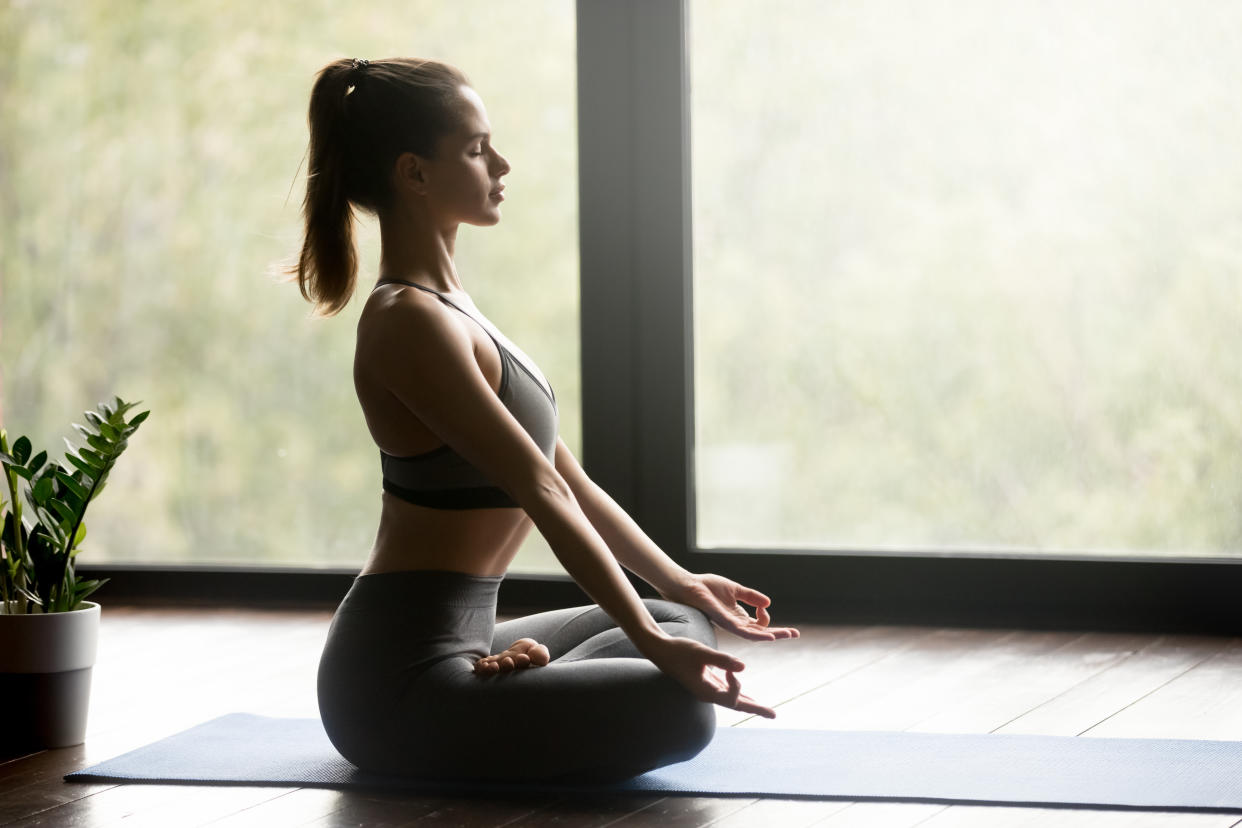Yoga could combat depression in just one month

Many rely on yoga to keep them calm, balanced and centred.
But it was unclear how quickly downward dog or the lotus pose could boost our mental wellbeing.
To learn more, scientists from Boston University looked at 30 people battling depression.
After just one month of regular classes, the patients felt significantly more positive, became less anxious and slept better.
READ MORE: The health risks of lack of sunlight
Nearly one in five (19.7%) people over 16 in the UK showed signs signs of depression or anxiety in 2014 alone, Mental Health Foundation statistics show.
In the US, 17.3 million adults (7.1%) had at least one depressive episode in 2017, according to the National Institute of Mental Health.
The NHS recommends mild sufferers do more exercise and confide in a loved one about what they are going through.
In more severe cases, counselling or antidepressants may be required.
Many studies have found yoga and breathing exercises to be relaxing, while also boosting mental wellbeing.
However, it was unclear how many “work outs” were required to reap the benefits.
To learn more, the Boston scientists assigned half of the participants into a “high dose” yoga group - three 90-minute yoga classes and four half-an-hour at-home sessions a week.
The remainder were put in the “low dose” group, two 90-minute classes and three half-an-hour at-home sessions.
READ MORE: Red wine can relieve stress and anxiety, study reveals
“We give medications in different doses in order to enact their effects on the body to varying degrees,” study author Dr Chris Streeter said.
“Here, we explored the same concept, but used yoga.
“Past yoga and depression studies have not really delved deeply into this.”
Results, published in the Journal of Psychiatric Practice, show all the participants felt more positive and less anxious after four weeks.
They also reported sleeping better and feeling less fatigued.
These benefits continued at week 12, when the participants were assessed again.
READ MORE: Meghan Markle attends public yoga class with 60 strangers
Exactly how yoga eases depression is unclear, however, the combination of gentle exercise with meditation is said to boost our mood.
The controlled, slow movements are thought to connect the body to the mind, while bringing us to the present moment.
The scientists hope their results will encourage people who are struggling to take up the ancient exercise.
“Providing evidence-based data is helpful in getting more individuals to try yoga as a strategy for improving their health and wellbeing,” study author Dr Marisa Silveri said.
“These data are crucial for accompanying investigations of underlying neurobiology that will help elucidate how yoga works.”


